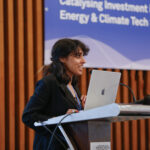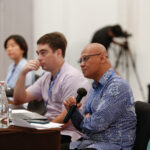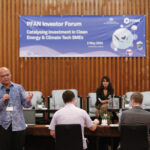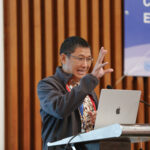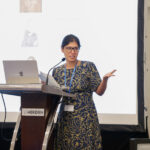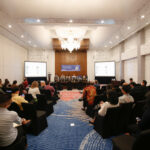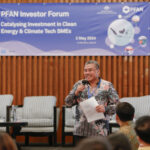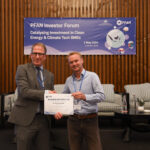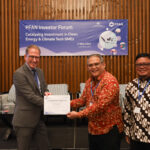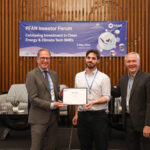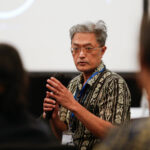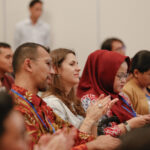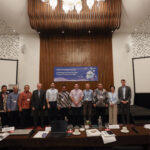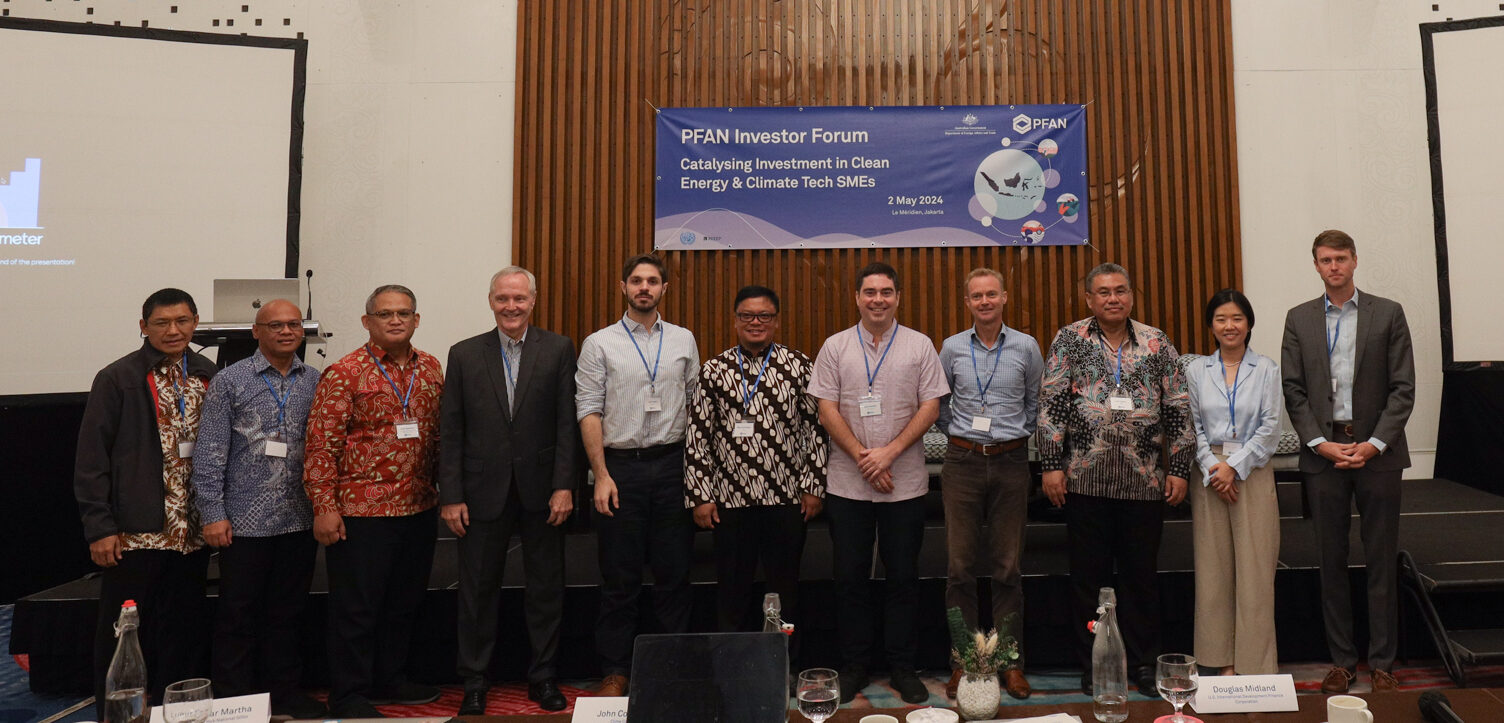
Catalysing investment in clean energy and climate tech SMEs at the PFAN Indonesia Investor Forum
Investors, industry leaders and stakeholders gathered in Jakarta on May 2 at the PFAN Investor Forum to catalyse investments in clean energy and climate tech SMEs in Indonesia, participating in a unique mix of presentations and interactive discussions aimed at fostering innovation and investment in the country’s emerging clean energy sector.
The Forum was designed to showcase promising SMEs which are significantly contributing to climate action and the energy transition. PFAN’s commitment to fostering partnerships and nurturing innovative projects in Southeast Asia underpins this initiative by providing a platform for emerging businesses to expand their reach, connect with investors, share insights and scale up their impact. Ahead of the main event, we invited four projects receiving PFAN support to a two-day bootcamp filled with coaching sessions and expert advice from our team to prepare them to pitch their innovative solutions to the assembled crowd.
The event was part of broader activities of PFAN in Southeast Asia, made possible with the generous support of the Department of Foreign Aid and Trade (DFAT) Australia. Rebecca Valentine, Officer of the Climate and Infrastructure Team at the Australian Embassy in Indonesia reflected on Australia’s climate strategy and activities in Indonesia and PFAN’s achievements in the region during the UNIDO/REEEP hosting period in her opening remarks.
Morning Session: Investor Pitches
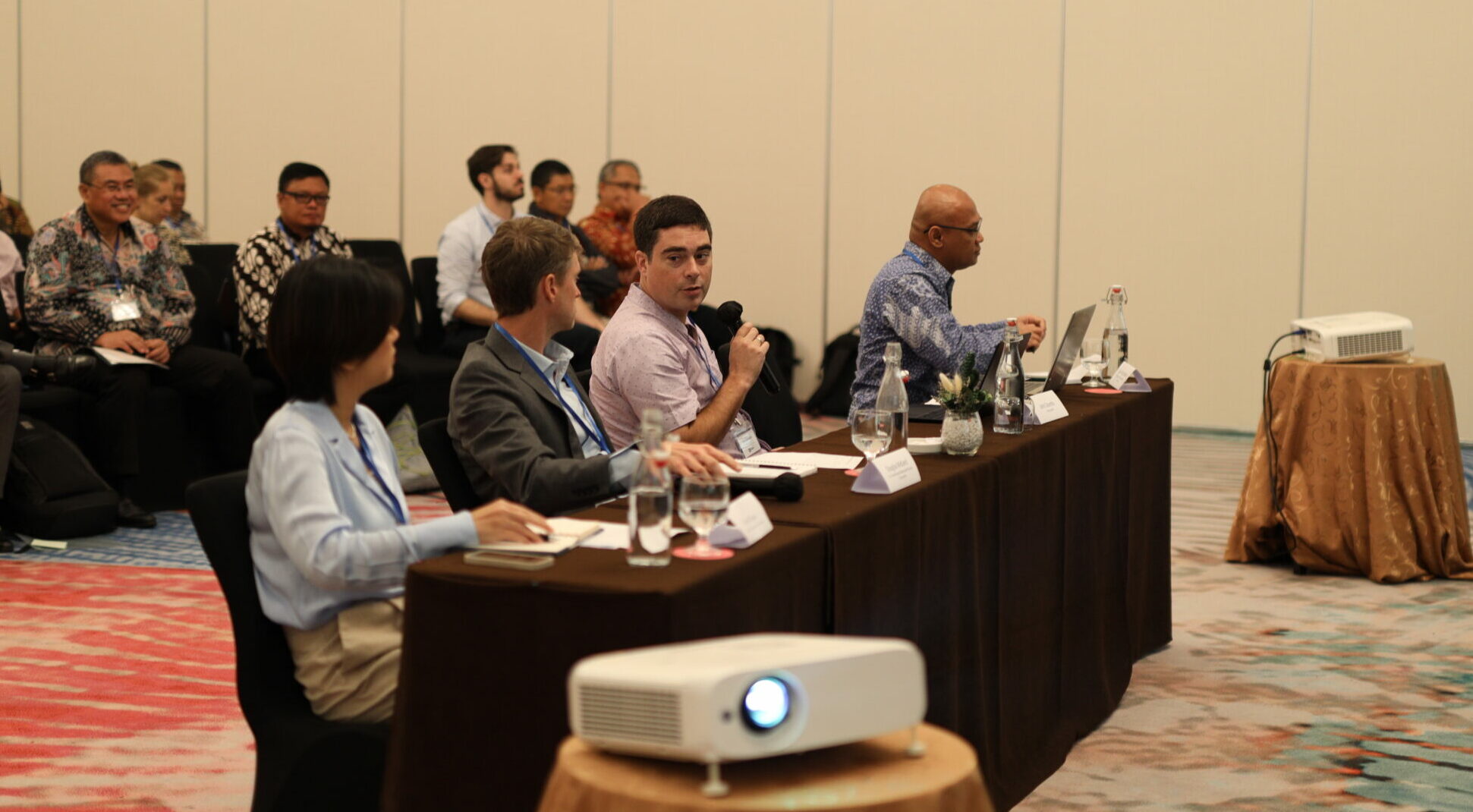
Judging Panel: Luhur Fajar, Financing Expert, Indonesia National SDG Secretariat Bappenas; John Colombo, Country Manager, Clime Capital, Indonesia; Douglas Midland, Managing Director, U.S. International Development Finance Corporation, Indonesia; Devyta Wijaya, Head of Legal, Compliance & Corporate Secretary at YCAB Foundation, Indonesia
The morning was dedicated to project pitching sessions from the four companies:
Inclusive shrimp processing with local smallholder farmers
PT Sumber Mina Investama has a unique business model that specialises in processing and cold storage of high-quality shrimp, with its core production coming from more than 700 smallholder shrimp farmers from across Indonesia. The company seeks USD 2.9 million in debt financing to increase its production 2.5-fold to meet growing demand from United States buyers of quality shrimp. This would allow it to increase annual sales from the current level of USD 19 million to more than USD 51 million annually within a one-year period.
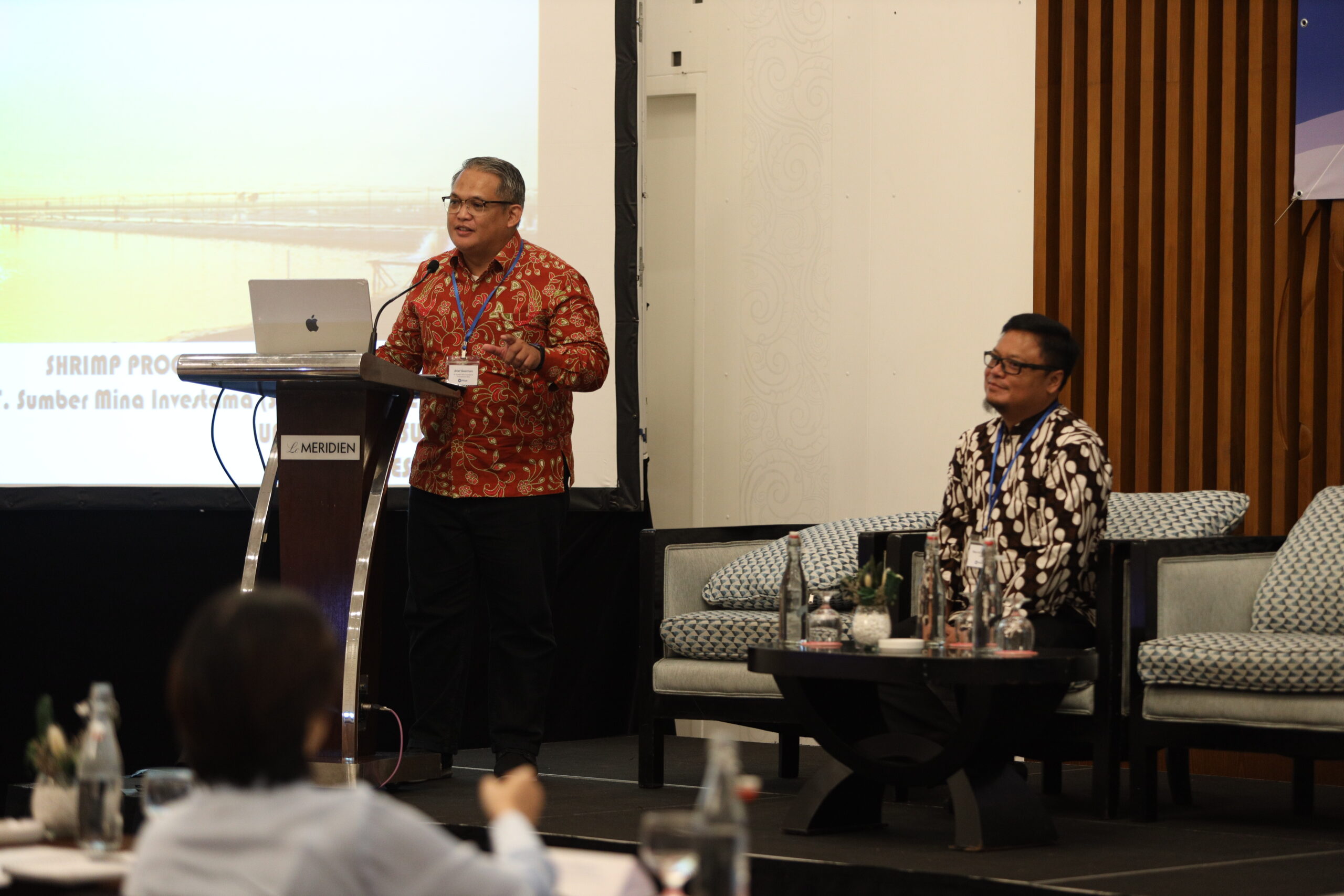
Arief Goentoro, Commissioner, PT Sumber Mina Investama
Scaling up seaweed cultivation in partnership with local cooperatives
Seatech Energy is working with local cooperatives in Indonesia to accelerate the growth of seaweed production by introducing large-scale farming, using a unique a system of pod structures in ocean waters off Indonesia. The pods are seaweed production platforms they have adapted from South African experience. Seatech plans to meet the rapidly growing demand for the use of seaweed in products such as carrageenan and agar as well as bioplastics, biostimulants, biofuels, animal feed and protein-based snacks. It is seeking a combination of debt and equity totalling USD 3 million for investment into its first large-scale seaweed farm in Takalar in South Sulawesi.

Jeroen Langelaan, Director, Seatech Energy
Collecting and destroying old refrigerants to reduce greenhouse gas emissions
Recoolit is a start-up that focuses on the collection and destruction of super-polluting refrigerant gases, destruction of the refrigerant and the sale of the resulting carbon credits to US corporations to offset their emissions. The company has proven its ability to collect refrigerant in Indonesia and sell resulting carbon credits, generating stable revenue, and is currently seeking to get its methodology listed and develop offtake agreements with additional buyers. Recoolit is seeking USD 1.5 million in debt financing to expand operations in Indonesia and launch new operations in India and Thailand.

Louis Potok, Co-Founder, Recoolit
Community-based waste management
PT Solusi Cerdas Sampah is a community-based waste management provider that builds, sells and rents small-scale waste separation machines for local villages. The machines automatically separate waste into organic and plastic matter, helping local communities to manage waste and generate value streams from organic waste and refuse-derived fuel (RDF). Since 2014, PT Solusi has installed 267 large machines (sized at 8 and 12 tons/day) and the company recorded USD 193,000 in revenue in 2023. They have started to build smaller machines (2 tons/day) and develop a new business model renting them to smaller sub-villages (rukun warga, with ~1,000 to 2,000 households). They expect to generate rental revenue of USD 11.7 million from these smaller over the next 5 years. They are seeking USD 1.1 million (debt or equity) to produce and rent the smaller machines to the sub-villages, helping them to manage their waste more effectively.
“We have a project to help local communities systematically manage their household waste, which positively impacts these communities. For example, it enables them to maintain a clean and healthy living environment. Additionally, the project creates jobs for local communities, often for women, which helps improve their livelihoods”, says Pria Mulyono, President Commissioner, PT Solusi Cerdas Sampah.

Pria Mulyono, President Commissioner, PT Solusi Cerdas Sampah
Afternoon Sessions
The afternoon featured two interactive discussions:
Gender Lens Investing
A panel discussion moderated by Dikshya Thapa, GESI advisor at TetraTech, highlighting the importance of incorporating a gender perspective in business, emphasizing its benefits in addressing business challenges. The objective of the panel discussion was to influence and inspire the ecosystem in Indonesia that is focused on accelerating enterprise development and investing in clean energy and climate change adaptation and mitigation—with the aim to spur them to take more assertive actions on gender inclusion.
“Gender lens investing is the idea that we need to recognise that women, especially women of colour or disadvantaged women from different backgrounds, face barriers to accessing much-needed finance. Different populations encounter various risks in accessing finance. By applying a gender and social inclusion lens, we can recognise that different target populations have differential needs for accessing finance. That’s one side of it. On the other side, there are opportunities for investors and entrepreneurs or startup companies to take on a gender lens”, says Dikshya Thapa.
The panel featured voices from diverse set of stakeholders invested in the success of SMEs in the climate and clean energy sectors, including entrepreneurial support organizations, NGOs, investors and entrepreneurs sharing real-world examples and experiences.
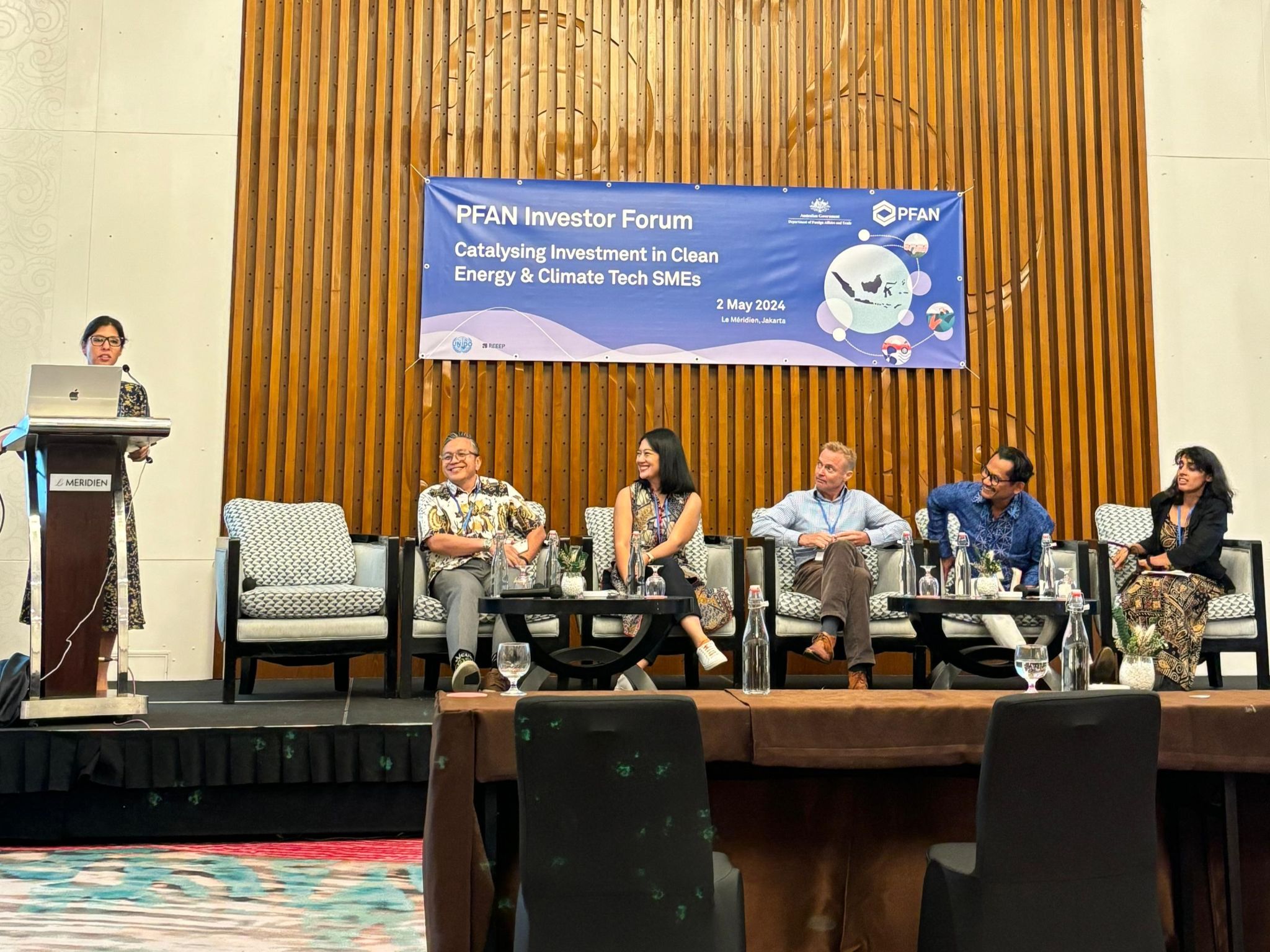
Picture credit: Instellar Indonesia
Panelists (left to right): Dikshya Thapa (Moderator), GESI Advisor, Tetratech; Dondi Hananto, Partner, Patamar Capital; Adisti Chandra, COO, lnstellar; Jeroen Langelaan, Director, Seatech Energy; Dedy Haning, Climate Justice, Yayasan Humanis; Puja Daya, PFAN Analyst, REEEP
Connecting the Dots
This unique session, which used a semi-circular seating arrangement with multiple tiers, brought together over 50 stakeholders to discuss gaps and opportunities in Indonesia’s entrepreneurial ecosystem. The focus was on building ventures and investing in clean energy and climate tech SMEs. A diverse range of experts were invited to make initial interventions of 3 minutes each to set the scene collectively. After the series of interventions from the experts, all contributors and participants continued the dialogue by sharing their own experiences and insights to find solutions the challenges and gaps identified through the “scene exploration”. More than 20 participants contributed during the highly interactive session, sharing their vision, actions and challenges, and identifying multiple opportunities for collaboration and cooperation. The session was concluded by asking all participants to collectively create a word cloud with the key take-aways from the session.
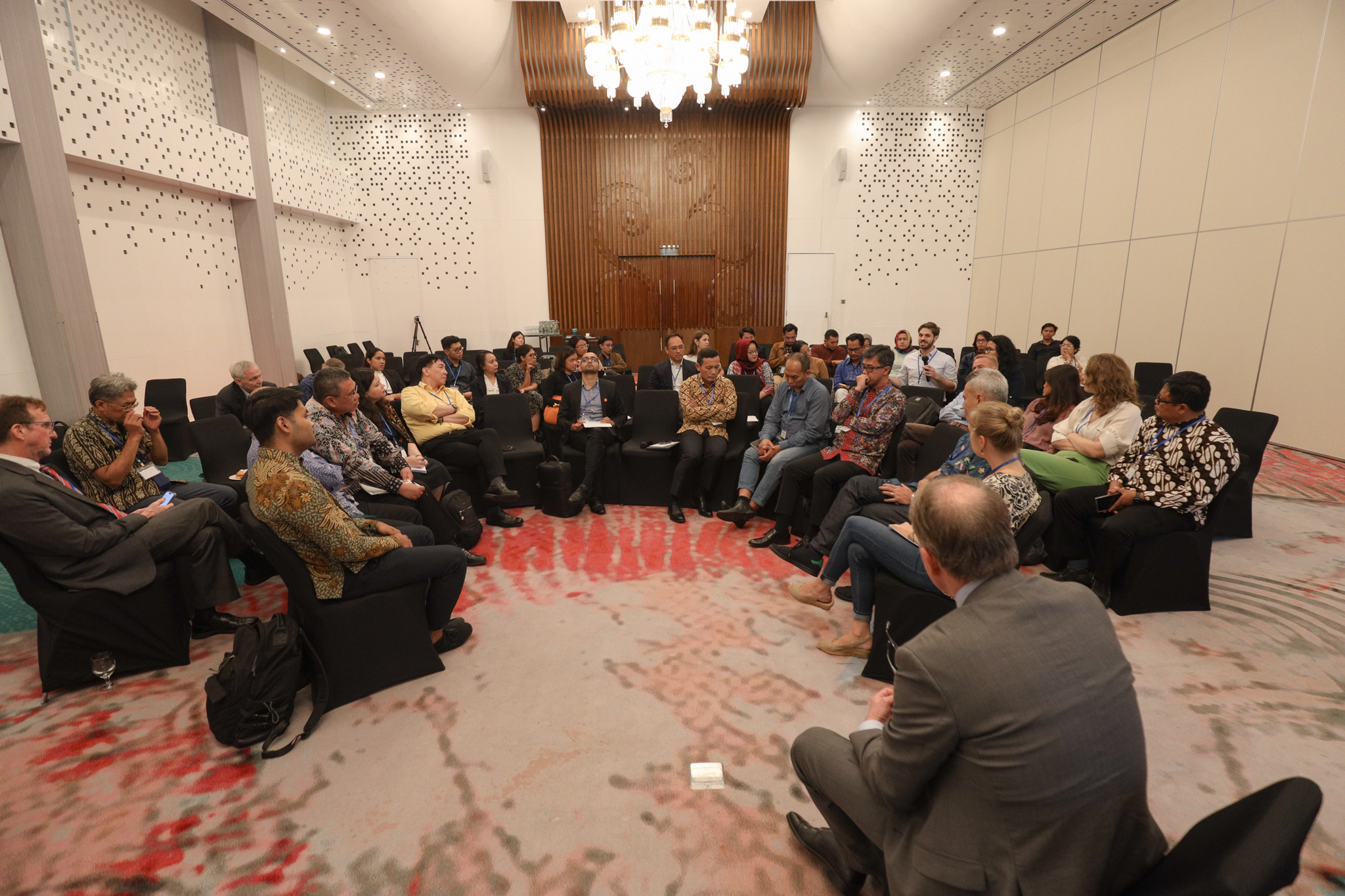

Contributors include: Aang Darmawan, United Nations Office for Project Services (UNOPS); Charlie Hartono, Asia Venture Philanthropy Network (AVPN); Eline Leising, ENVIU – Social Impact Venture Builders; Diyanto Imam, New Energy Nexus Indonesia; Irman Boyle, PT Indonesia Infrastructure Finance; Ivan Sandjaja, Global Entrepreneurial Ecosystem (GEN Indonesia); Laura Wijaya, Foreign and Commonwealth Development Office – UK Government (FCDO); Luhur Fajar, SDG Financing Hub (UNDP); Hari Yuwono, Private Financing Advisory Network (PFAN); Eddi Danusaputro, BNI ventures; Siddharth Khandelwal, IIX Indonesia
Click here to see the Connect the Dots Mentimeter Results.
Outcomes
The PFAN Indonesia Investor Forum successfully showcased promising SMEs working in clean energy and climate tech in Indonesia. With a highly interactive afternoon agenda, the forum also successfully fostered networking and connections among the nearly 100 participants. The discussions highlighted the potential for further development in gender-smart investments and brought attention to the opportunities for early-stage clean energy SMEs in Indonesia. Following this event, PFAN will share information about the 4 SME companies with interested investors and also release a report by New Energy Nexus focused on investment opportunities for clean energy and cleantech in Indonesia.
“One way investors can support the development and growth of clean tech and clean energy startups in Southeast Asia is by recognising the significant potential in the early-stage market. I believe the growth in this sector will occur in the next two to five years. Therefore, it’s beneficial for investors to engage with as many early-stage clean tech and clean energy entrepreneurs as possible to reap the benefits as these startups grow”, says Diyanto Imam, Accelerator Program Director, New Energy Nexus in Indonesia.
“I believe the main benefit of PFAN for investors is its ability to provide an information platform and access to exciting opportunities in Indonesia and Southeast Asia. PFAN has a deep network and extensive local knowledge in these regions. This knowledge and these connections can help investors tremendously in understanding the market dynamics and making better investment decisions”, says Diyanto Imam.

